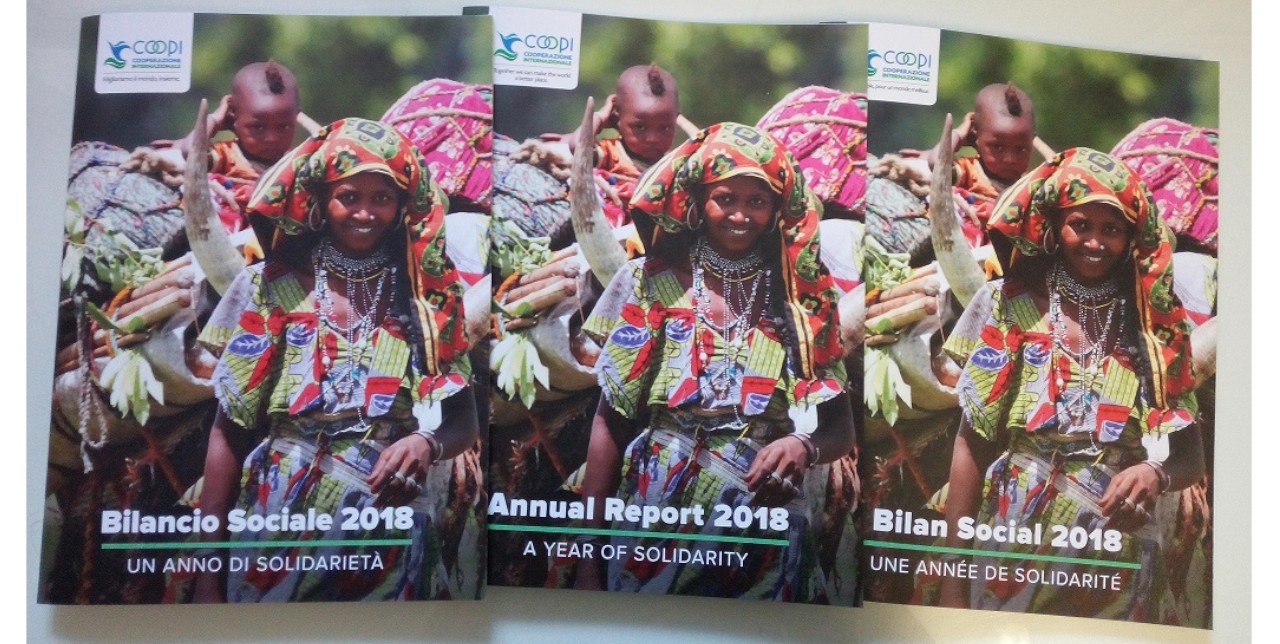01-10-2019 | di COOPI
COOPI Annual Report 2018 launched
On Saturday September 28th, COOPI Annual Report 2018 - " A year of solidarity" - was officially launched in Milan, in front of humanitarian workers, supporters, members, volunteers and participants during the "COOPI Cascina Aperta" and COOPI Meeting events.
The Annual Report was presented by the Director of COOPI, Ennio Miccoli, who was interviewed on the organisation’s latest news by journalist and Director of Un-Guru, Antonella Tagliabue.
COOPI has been present in 30 countries worldwide, with 241 humanitarian projects that reachedmore than 4,700,000 people with a budget that exceeds 61 million Euros. Also in 2018, COOPI expanded its presence to 2 new countries, Gambia and Mauritania. From an organizational point of view, it is worth mentioning the organisation’s further steps towards a regional decentralization that will allow COOPI to be closer to its beneficiaries and faster in humanitarian responses.
"2018 was a year of strong development for COOPI: the number of our projects and the total volume of our activities has never been so high. […] An outcome that is above all the result of strategic choices such as the adoption of a regional approach to humanitarian crises and the decision to take action in new countries", said Ennio Miccoli.
By introducing a new regional structure, COOPI will align itself with other major international organizations and encourage greater participation of local partners - five Regional Coordination Areas (West Africa, Central Africa, Eastern and Southern Africa, Middle East, Latin America and the Caribbean) will have more autonomy in the decision-making process and while planning and implementing activities in the field, in collaboration with local stakeholders. The headquarters in Milan will increasingly focus on guidance, monitoring and support activities, instead.
The Annual Report represents a crucial institutional tool for accountability to COOPI stakeholders – it includes an accurate description of its identity (history, governance, staff, policy, sectors of intervention) and resources (partnership with donors, financial budget), and it also focuses on its major projects to tackle, for example, the Lake Chad, the Syrian and, more recently, the Venezuelan crisis.
To find out more, read our Annual Report 2018.




 Italy
Italy